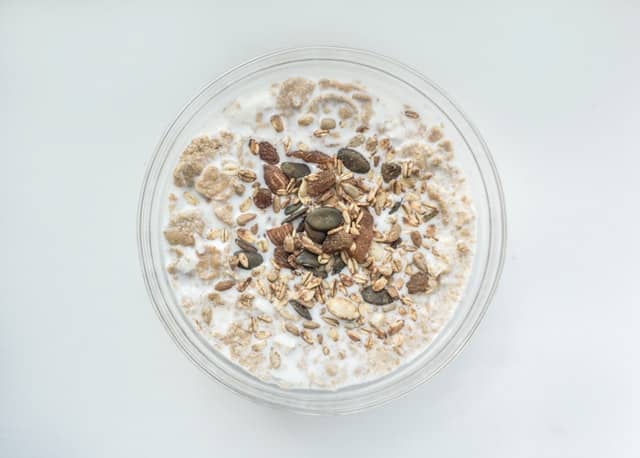Oats are one of the most popular ingredients today for those who look for healthy meal options. They can be used to make a variety of nutritious breakfast, lunch, dinner and snack recipes. However, a lot of people wonder where they come from and whether they suit a plant-based diet.
So, are oats plant based? Yes, oats are 100% plant based in their original form. They are available in several varieties most of which are obtained from plants. While the most traditional oats are completely plant-based, the modern varieties available in the market sometimes contain other ingredients and processing.

It is a good idea to check the list of ingredients before buying oats for your plant-based diet. In this article, let us learn more about oats, their nutrition and other details to help you understand how you can add them to your plant-based diet.
Why Are Oats Plant Based?
Oats are obtained from plants that grow in fields all year round just like wheat and barley. They are considered to be whole grain and highly nutritious, making an excellent plant-based ingredient for daily meals.
This wholesome ingredient is used in several recipes along with other ingredients to improve the nutritional value and make them healthier. The nature of ingredients used in the recipe decides whether it is plant-based or not.
What Are The Main Ingredients in Oats?
Most reputed brands sell oats made out of all-natural whole grains. There is no other ingredient necessary. Whole grain oats are a great source of soluble fiber that provides a plethora of health benefits to the body. They are a sodium-free cereal that helps lower the sodium intake if consumed regularly.
Rolled oats or traditional oats sold in markets under different brand names are steamed and rolled after removing plant husks. They are processed this way to enable faster cooking. This product contains nothing except whole grain. Another variety of oats is the steel-cut that comes from the same plant but is processed differently. They are left intact and chopped instead of rolling.
However, oatmeal mixes available in the stores and restaurants often contain milk derivatives and butter along with other additives and preservatives. So, it is best to check the label for ingredients if you are following a strict plant-based diet.
Oats Nutrition
Oats are a great option for a nutrition-dense whole grain that provides daily dietary fiber, antioxidants, minerals and vitamins when consumed in the form of healthy recipes. Here are the nutrition facts for 100 grams of oats:
- Calories: 389
- Carbs: 66.3 g
- Fiber: 10.6 g
- Sugar: 0 g
- Fat: 6.9 g
- Protein: 16.9 g
Carbohydrates
Carbs make up 66 percent of oats by dry weight. 85 percent of this content comes from various types of starches. It contains very low sugar.
Fiber
Whole oats provide 11 percent fiber, most of which is soluble, resulting in a fuller stomach, slow digestion and appetite control.
Protein
At about 11-17 percent of the dry weight that exceeds most other grains, oats are a wonderful source of high-quality protein.
Vitamins and Minerals
Oats also contain high amounts of vitamins and minerals including iron, phosphorus, manganese, zinc, vitamin B1, selenium, magnesium and copper.
Conclusion
Oats are 100% recommended for plant-based diets as long as they are consumed in their original form. Manufacturers offer oats in a wide variety and you can always check the label to make sure the variety you pick goes well with your plant-based diet.
Most Popular Questions: